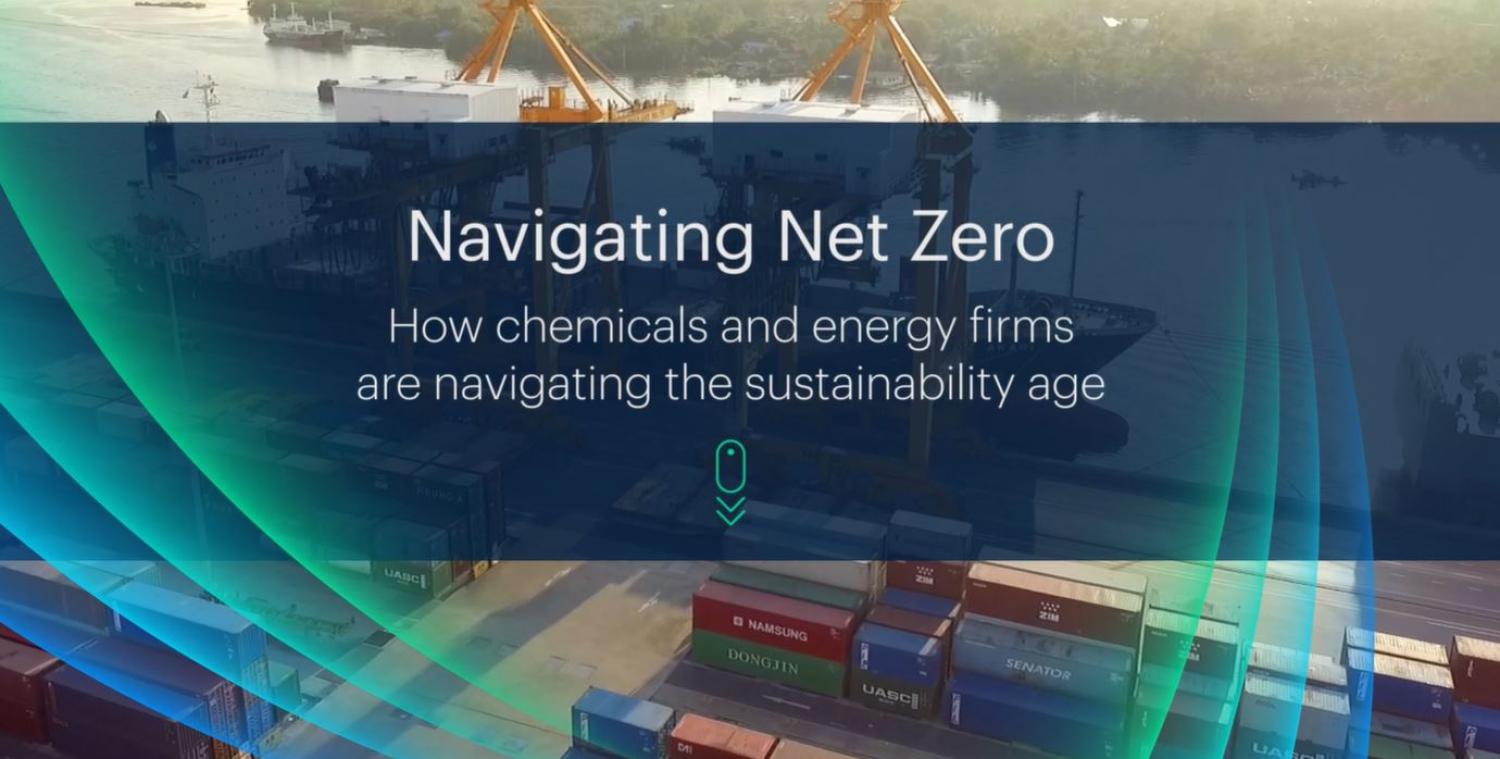
Introduction
It’s never been more urgent for the chemicals and energy sectors to act with purpose, and those of us within the industry know it. The approach to sustainability taken by these sectors has undeniably undergone a sea change, with widespread acceptance of the need for purposeful action. But knowing change is needed and enacting it are two different things. Both sectors are still largely fossil fuel dependent, and are negatively associated with crucial environmental issues, like CO2 emissions and plastic waste. Perhaps counterintuitively, the fact companies in the industry could make radical operational changes means they are well-placed to have a positive environmental impact, as long as the cost of having this impact is itself sustainable.
In our survey of more than 1,000 chemical and energy companies across seven sub-sectors in five continents, we found that 97% have environmental impact reduction targets. Nevertheless, our survey reveals that parts of the industry may be underestimating the size of the challenge, and the necessary steps to avert a climate disaster.
Some of this perceived inaction could be fuelled by firms’ overly pessimistic view of the cost of compliance: One in five firms globally expect regulatory requirements linked to the environment to cost between 11-50% of turnover, while a fifth of US, Canadian and Japanese firms expect it to cost between 26-50% of sales. This report takes the global pulse of the chemicals and energy sectors in terms of their motivations to transform their operations, the potential barriers to change, and their hopes for the future.
Defining Purpose
Purpose is an extremely wide phrase that can be stretched to cover a vast array of positive actions. For this report, we would characterise purpose as delivering on environmental goals in a way that is financially sustainable and acceptable to all stakeholders. Nearly two thirds (64%) of the companies we surveyed across 18 countries said they are on track to meet their climate-related targets. While this figure is arguably encouraging, almost half of such businesses do not publicly publish their targets – which might allow critics to question how bold they are.
If targets are not courageous and transparent - aside from the potential catastrophic consequences for the planet - businesses risk further fuelling the already negative public perception of our industry.
They also risk attrition to competitors with a better environmental image, or alternative products, a particular issue for the plastics industry. There are already several packaging firms that have begun switching to alternatives such as paper, cardboard and glass, despite these materials often having a heavier CO2 impact. Reducing the negative environmental impacts of energy and chemical production requires collaboration throughout the supply chain, alongside regulatory frameworks.
Furthermore, careful consideration of the science is needed when it comes to material and feedstock selection in order to minimise climate impact. These choices are seldom easy.
Ready for change
The notion of internal targets points to a wider issue about the rhetoric surrounding climate change: Few national or global initiatives are actually binding, meaning corporations do not currently have to meet goals set by governments across the world. Regardless, more than a quarter of the companies we surveyed stated that ‘doing business with purpose’ was their single-biggest strategic priority for 2021, showing that there is a desire by firms to reduce their environmental impact.
But aims need to become actions, and it is by creating a clear strategy, part of which involves harnessing the power of data and emerging digital technologies, that chemicals and energy companies can accelerate their efforts towards achieving their green goals.
Being part of the chemicals and energy industry means we know companies are focusing on driving innovation to help them identify practical ways to reduce fossil fuel use, reduce plastic waste and curb CO2 emissions. Overt strategies supported by data and analytics can help here, and should allow firms to improve their operational efficiency, expedite project planning, and assist decision-making, while also supporting the evolution of supply chains to help create a sustainable future.
Firms also have a responsibility to look beyond the boundaries of their organisations; they must push for standardised information so that approaches can be compared directly, help generate cradle-to-grave analysis of every potential material, and ensure consumers are educated about the pros and cons of each material to enable them to make informed decisions. The pressure to do these things is only going to keep rising.
Accessing perspectives
Chemicals and energy companies must be at the vanguard of the world’s efforts to reduce our negative impact on the planet. Encouragingly, ‘doing business with purpose’ was the single biggest business priority for the largest proportion of companies in our survey. A total of 26% of the 1,003 firms stated this, closely followed by ‘entering new markets’, which was the main motivation for a quarter of respondents.
The belief that purpose was the key business driver for 2021 was particularly strong in North America (encompassing the US, Canada and Mexico), with two fifths of firms selecting this, but was weakest in the United Arab Emirates (7%), and Japan and Malaysia (13%).
As the world economy continues to emerge from the coronavirus crisis, it’s notable that the fewest companies cited ‘recovering from the impact of the pandemic on our business’ as their main priority. This view could change though if governments implement initiatives that simultaneously address the heightened focus on sustainability that has emerged during the pandemic and repair the public finances, such as Extended Producer Responsibility (EPR) schemes.
